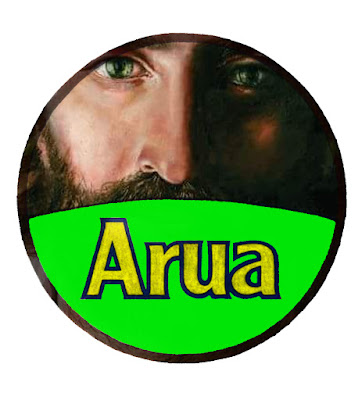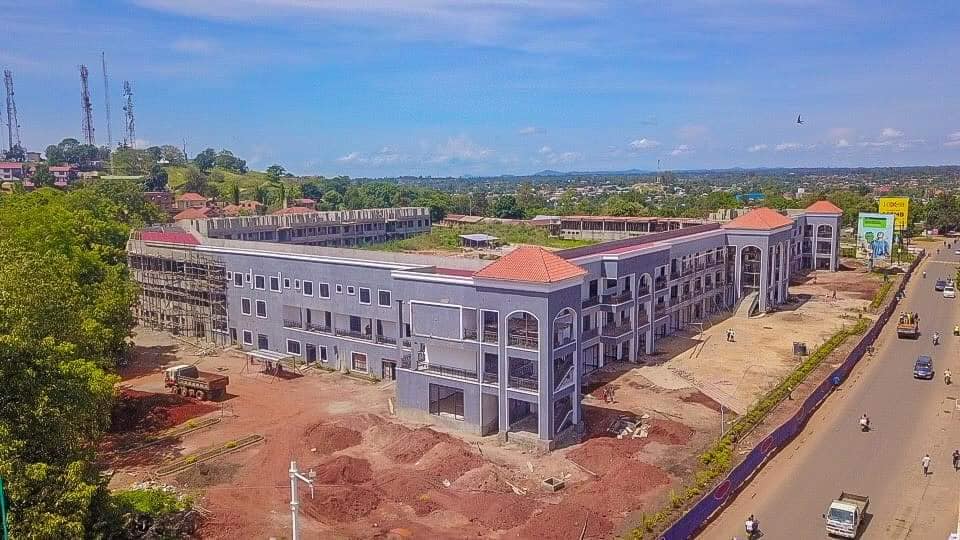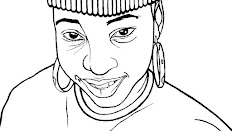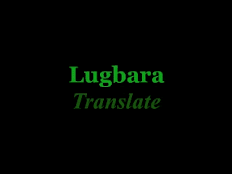Arua is a sweet, excellent (1st Class), peaceful and prudent Business Hub at the Heart of West Nile (Northwestern Uganda)...
The entire locality got its name from a medium-sized rock elevation directly south of the main Avenue Road. The name "Arua" translated from Lugbara means "Small prison" (Others say "In Prison"); Belgian colonialists built a transit point (for the bigger prison in Aru, DR Congo) near a ridge originally named Ojiodri, buried inmates in Barifa Forest on the East of the hill plus fought many battles near there...
Arua Hill has a superfly, 12-star, 360-degree panoramic view of Lugbaraland from Ayivu to DR Congo, Maracha, Terego, Vurra and beyond... With a pair of binoculars, you can see so much more...The Lugbara Kari Palace used to be near Arua Hill, but was moved to Giligili in the West and later used by the Ugandan Army... The name Arua stands for Peace and Prudence. The Lugbara Tribe is a patriarchal Chiefdom led by a rotationally-elected Agofe (Paramount Chief of all clans, that is Ayivu, Maracha, Terego and Vurra). Nevertheless, JESUS is King in Arua...
Urban Tourism in Arua can entail visiting the Central Business District. Adumi Road (before Smash Roundabout which takes you to Onduparaka) has some of the Tallest Buildings in Arua City; 'ba da sende tawuni-a tipasi [money was poured in town using a tipper]... Nevertheless, the Tallest Skyliner (one of many above 7 floors) during Twenty25 is found near Osu Village...
Hotels: Desert Breeze with swimming pool, Dreamland in Kuluva, Prince Palace, Hotel Arua, Golden Courts, Le Tsuba, Slumberland, the exquisite Harriton Hotel on Avenue Road, Tropical Suites, Crane Resort, Heritage Courts and Park, Santa Maria, head-turning Arua Hill Hotel, Pacific (Oldest in the City), etc...
Lopi Lopi Fish Market in Oli Division (East of Lobida Caryard for transportation vehicles connecting customers to Yumbe and beyond) brings together three countries: South Sudan supplies, Uganda sells while DR Congo buys. The business was so lucratively massive that a 2nd Lopilopi market had to be created. You can also find another fish arena behind the Arua Central Market, south of KKT Plaza plus in other places...
Oluko Falls is a series of waterfalls in Oluko Suburb - East of Arua Hill and Barifa Forest on River Asa; the Most Visited Attractions include Abairo Falls owned by John Acile (at the end of Waterfalls Road, directly below Arise Center overlooking a steep mini-rift valley) and Oloporoporo Falls bought by an American named Mike Elkins. During the dry season (December to February), Abairo becomes a thinner horsetail waterfall with a punchbowl swimming pool at the bottom, but when the rainfall starts between March and November, the gushing increases and swimming in the pool is not recommended unless safe. Parties, picnics and recreational tours keep this hidden place quite active...
Island Resort Beach is a recreational getaway between Dadamu and Oluko, off the Mvara-Oduluba-Odravuasea Road and behind Otokoa Market...
Neighbourhood (West Nile, Uganda): Miriadua Falls, Alikua Pyramid, 1991 Ojapi Air Raid Woodland Peony... Lodonga Basilica... Mt. Wati, Onayi, Olewa Falls on River Enyau... Agoi Falls, Vurra Customs, Ezuku Forest Reserve... Ajai Wildlife Game Reserve, Rhino Camp, Laropi Ferry Crossing to Adjumani... Mt. Liru, Salia Musala... Nyagak Hydropower Dam, Biku Smallest Church on Earth in Nebbi... Pakwach Bridge, Albert Nile, Wadelai, Owiny Solar Eclipse Monument, Gipiri and Labongo Separation Site... Murchison Falls (Kabalega) National Park, Budongo Forest, Paraa, Lake Albert...
Origin of Arua (Name)
Ayivu locals around Arua Hill before the Whitemen came used to call it Ojiodri. The ancient name was given (before the current one) because of the caves situated on the eastern foot of the hill (as you head towards Barifa Playground and cut right inwards or precisely where Dr. Amandua built his house or Access Arua City FM started before moving northwest of the hill and replaced by a kindergarten).
The 1884 -1885 Berlin Conference about the Partition of Africa saw the continent divided among European powers. The King of Belgium (King Leopold II) fought very hard, through the renowned explorer Henry Morton Stanley, to have Congo as his personal property. He was granted his wish and West Nile became part of Congo Free States (Les États Liberté Du Congo). Around 1895 to 1900, he sent his representatives to oversee the collection of taxes, gathering ivory, cowrie shells, skins and hides of wild game in West Nile. The representatives earmarked some places for ease of their work namely Alikua (which they named Mount of Wati Village [Village de montagne de Wati]) in the present day East Maracha, Wadela(y)i in Lower Alurland, Dufile (corruption of Odrukpele [Place of many buffaloes]) and Kajo-Keji in Ma'diland, Goli in Upper Alurland plus Ojiodri (now Arua Hill). It was in Alikua that they found a local Paramount Chief called Kamure whom they appointed to help in overseeing their work. Kamure's influence extended as far as western Ayivu. He was made the most paramount of all the traditional Lugbara chiefs of Lugbaraland. In Alikua, they built a small pyramid-like structure; no one has understood the purpose why it was built though some report that two Belgians were buried there. In some of the above mentioned places, the Belgians built or fixed some instruments to monitor the weather. It was also on Ojiodri (present-day Arua Hill) that they built a house to put their instruments for monitoring the weather and radio messages (Radio Call frequency was already in use for a few years since an Italian called Marconi had discovered it). On the western side of Ojiodri (where Arua Hill Primary School is situated), the Belgians had some houses for residing and also to lock-up offenders brought from the other parts of West Nile (mostly the north). These offenders would be locked up for a few hours or days as they awaited orders to take them to the bigger prison cells in the interior Congo to work on the rubber, coffee or cocoa plantations. The Lugbara mistook the building on top of the hill to be a prison cell. Gradually, they started referring to the building on top of the hill as a prison cell. Hence Aru-a [In the prison cell]. They actually never saw anybody being taken there but believed that it would happen at night.
What was happening at Ojiodri was the opposite of what was taking place at Aru in Congo where they built a bigger prison nicknamed Mokili ya Nguma in KiBangala meaning The Crocodile's Territory. Many people arrested from West Nile ended up being locked up in Arua for a few days to months. Prisoners were not kept for long periods because the Belgians didn't want to incur a lot of expenses in feeding. Because of the brutality of these Belgians, some people lost their lives and others became incapacitated. The hill was put under constant guard; no local would climb it as they used to do before. The young Ayivu girls and women who went up in the evenings to grind millet and sorghum flour on the rocks were banished. The Belgians brought in strange armed guards whom the Lugbara generally called Tukutuku from the interior of Congo to guard the hill and some of their strategic places in West Nile. A local Ayivu man called Tawua (blacksmith by trade who had his workplace where Springs Kindergarten is situated these days) was put under constant watchful eyes and later evicted. They suspected him to be making spears and arrows for an imminent attack. Indeed, it was now "prison everywhere" as the local Ayivu used to say, "Joá mini ne vaa 'da ma amveri co esele aleni be ku [The outside of that small house you see below is not different from its interior]..."
Towards the end of the 1890s and early 1900s, there were Belgian outposts in Alikua, Wadelai, Nimule, Kajo-Keji, Dufile and a smaller one at Goli to effect their administration. On Arua Hill was a small meteorological station and the bigger one was at Wadelai, Kajo-Keji, etc. There was a bigger prison at Aru in Congo which of late has been standing at the roundabout/ junction of Route Aba & Ovisoni route. The prison at the western foothill of Arua Hill was a transit camp used for keeping prisoners for a few days or hours as they awaited their transfer to Congo and infact the biggest prison of all was at Djugu in the Lendu territory in Congo. To this day, it still stands on the eastern part of Djugu Town near the Bypass as you head towards Bunia from the Mahagi - Ngote route. These prisoners taken from Ma'di/ Alur (now Uganda) were moved to do hard labour on the coffee, cocoa & cotton plantations for a few months and released because the Belgians didn't want to incur expenses in feeding a large number of prisoners. Their offenses ranged from failure to pay taxes in form of cowrie shells, fights to hunting the wild game, adultery, etc. On 17th December 1909, King Leopold II of Belgium died and according to the agreement between the British and Belgians during the Partition of Africa in 1884, the eastern part of the Lado Enclave marked by a watershed (the current borderline between West Nile and DR Congo) should revert to the British rule four years after his death. The years 1911 to early 1914 was a period when this eastern area was put temporarily under the Anglo-Sudan Protectorate. A currency (Pound) was introduced and cowrie shells disbanded. This was a period of confusion as there were no direct administrators because Khartoum in Sudan was far away.
 |
| Mount Rushmore sculpture in America depicting the (pre-World War 1) Republican Theodore Roosevelt's face (The World War 2 Franklin D. Roosevelt was a Democrat)… |
Many Whites (including the 26th US President Theodore "Teddy" Roosevelt who died in 1919) came to hunt wild animals in Arua. Roosevelt camped at the western shores of River Nile with his team and they named that place Rhino Camp because they found many rhinos there. They were particularly impressed when they saw some white rhinos near Wadelai. After King Leopold of Belgium died, Lado became like an Elephants Graveyard as hunters trekked there for sport. In April 1914, the British took control of West Nile and raised their flag (Union Jack) on the western side of Arua Hill near the small Belgian prison. They disbanded the Pound and use of cowrie shells, but introduced the Rupee (what the Lugbara used to call Robia). The first District Commissioner was called Mr. Arthur Evelyn Weatherhead and there is a road in his name (Weatherhead Lane) which runs from the current Post Office (near the former Court Hall) along the north end of the Golf Course to Anyafi(y)o Senior Quarters (formerly European Quarters) and ends at the Arua Hill Roundabout. The first DC's offices continued to be at Arua Hill up to 1919 when they built new offices at Giligili which was later turned into a prison facility in the 1930s after building the current offices of the (R)DC...
Arua stands for "Small prison", medium-sized hill, but big aura...
Radio in Arua
On Saturday 12th July 2025, I confirmed for the second time in a month (First time I didn't believe) that NBS TV has an affiliate called Next Radio Arua. After googling the frequency before midnight, I tuned in manually because the scan could not pick it in Arua Hill Division; all I heard was like a test because music played nonstop (especially Bongo). I wondered why most radio stations are secular; even Roman Catholic stations like Pacis play worldly music. Others are predominantly secular, but cue in Gospel songs sometimes eg Capital FM from Kampala which I knew for playing devilish music. I grew up thinking love songs can pass as long as they are not too lustful, violent nor promiscuous, but what is wrong with listening to only worship music? Music was created in Heaven for the worship of GOD, but we have given it many different, distracting purposes including glorifying ourselves, the partners we covet and property we own. Imagine only Gospel music played on radio, Arua would be more peaceful and blessed! Music attracts spirits and repels them too: Do you think alcoholics, fornicators (adulterers), thieves plus other sinners cannot be deterred by Gospel? It changes the environment and casts out demons like exorcism technology; I hope Artificial Intelligence helps us worship GOD better too. Out of about 16 FM stations on air, at least two to four are exclusively Gospel-oriented (Voice Of Life Arua [VOLA] and a Congolese station plus others).
Lessons from Outside Arua
Tom Brady: Let the negatives people speak bounce off the walls.../ Work harder.../ Let's go...
Lionel Messi: Stumble, get up and try again.../ You cannot win all the time.../ Use your instincts...
Michael Jordan: Don't break when you are broken.../ Train hard like it is the actual game...
Stephen Curry: Practise fundamentals...
M7: Otita...






![Elekitoro Komisoni Ongu [EC Race] 2021](https://blogger.googleusercontent.com/img/b/R29vZ2xl/AVvXsEjAo2xbJR5ARnWe_U1As57tS-D9aSdj6KR1hY01W8yFB1zNRGcVVQy9lDHv6mZFOBYCWrohl9bjA538bXyUrERcUNs9HVPvuR1_-jXCuI-npTMsKM4SxPul3mEZG8NDky0RotfGX5XqawQ/)














